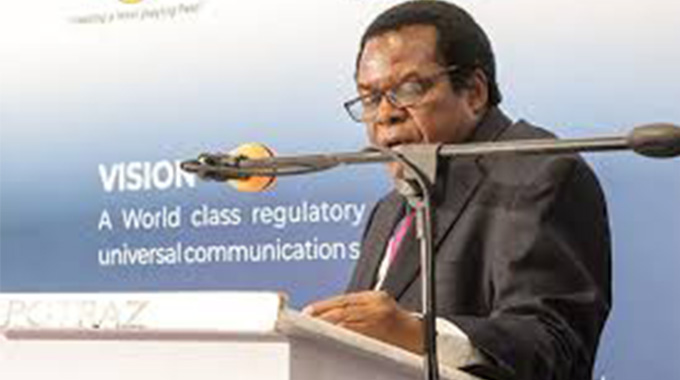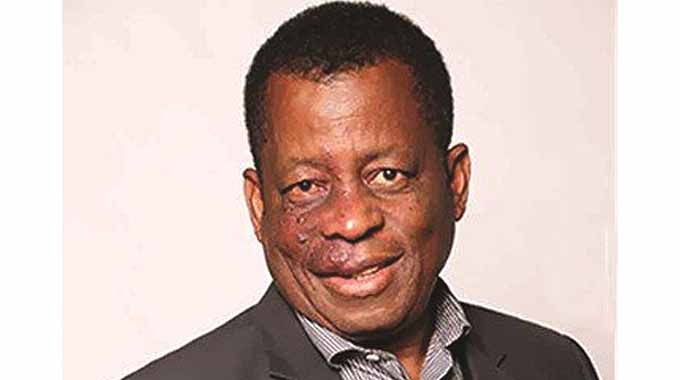Debate over new data prices

Chronicle Writers
THE increase in tariffs by the telecommunications service providers granted by the Postal and Telecommunications Regulatory Authority of Zimbabwe (Potraz) has created debate among consumers, with some saying the upward review has pushed access to digital services beyond the reach of many while increasing the general cost of business.
The industry’s last tariff adjustment in October 2023 hardly made a dent on operators’ viability due to the local currency’s depreciation, putting pressure on Zimbabwe’s telecommunications sector which is battling many challenges including legacy debt, limited foreign currency availability and infrastructure vandalism.
The sector has also been grappling with constant power outages, forcing operators to rely on expensive diesel backup generators.
Potraz announced the new voice, data and SMS tariffs in local currency last week Friday, as businesses finally switched to the new Zimbabwe Gold (ZiG) currency.
The regulator pegged voice tariffs for mobile network operators at ZiG 0,0098 per second, with data now selling at ZiG 0,0928 per megabyte while an SMS now costs ZiG 0,1207.
Econet Wireless Zimbabwe’s cheapest private Wi-Fi bundle package of eight gig costs ZiG 220, which if converted to forex using yesterday’s exchange rate will cost about US$16, but now has an extended validity of 35 days.
On the other hand if an individual is directly buying using foreign currency, the same package costs US$13, and is valid for only 30 days. The biggest package of 50 GB costs ZiG 1 133, which is equivalent to about US$84.
NetOne monthly package of 1,5GB costs ZiG138. Bulk data service provider, Liquid Intelligent’s unlimited package costs ZiG 5900, which is equivalent to about US$437.
Speaking at the recent stakeholder engagement meeting, Potraz director general, Dr Gift Machengete has said while the need to increase tariffs may seem counterproductive in a world where affordability is paramount, it was crucial to strike a delicate balance between ensuring access to essential ICT services and safeguarding the long-term viability of the sector.
As the country increasingly embraces the fourth industrial revolution and the Internet of things, business leaders insist there is a need to address affordability of data and other digital services.
Zimbabwe National Chamber of Commerce (ZNCC) Matabeleland Chapter vice president, Mr Mackenzie Dongo said service providers should strike a balance between data tariff increases and ensuring smooth business operations.
“These days, most business is conducted online,so the more costly data is, the more costly it becomes to run a business. In Zimbabwe, we are seriously looking at the cost of doing business, which we feel is higher and usually, it’s actually passed on to the end users,” he said.
“So, affordable data means affordable end products. If it’s expensive then the end product is going to be expensive,” said Mr Dongo.
He said service providers should strive to make Internet services more reliable and cost effective to consumers. Mr Dongo said there is a need to revisit the cost of data and making it more affordable not just for business but the general public as well.
However, an annual sector performance report released by Potraz early this month also highlighted the impact of hyperinflation on the sector and the need to constantly adjust pricing to mitigate the ever increasing cost of service provision.
“The hyper-inflationary environment that prevailed in 2023 posed significant challenges across the sector. This resulted in significant increases in the cost of providing services.
“Revenue to cost ratios diminished for most operators, which is a signal for diminishing profitability across the sector. This is a worrying situation, which calls for consistent alignment of service charges to the increasing cost of service provision.
“Unless this problem is addressed, profitability will continue to diminish with implications on sector investment, innovation, and development,” the report said.
Meanwhile, Bulawayo businessman and economic analyst, Mr Morris Mpala, said considering that most business is being done virtually, the latest increase in data prices is expected to have a downstream effect on other businesses.
“It’s an increase in the cost of doing business, which could lead to price increases in some goods/services being offered, especially those that have a major online presence,” he said.
“Thereafter, it will stabilise after business has adjusted to the new changes. It might reduce operational efficiencies, effectiveness of doing transactions,” said Mr Mpala.
A Bulawayo resident, Mr Simiso Moyo, said what is worrying is that while data tariffs continue to increase, sometimes consumers buy data that expires without even being used.
“Imagine, if you buy this hourly data package, sometimes the data expires before you can do anything because the network will be just too low,” he said.
“In some houses, I have heard individuals complaining that data can only be accessed from a spot. I think service providers should do better as we are being short-changed,” said Mr Moyo.
Mr Noah Arkman from Gweru said Internet access and affordability remains a problematic issue for consumers.
“It’s rather unfortunate that these network companies are increasing the prices of data as and when they feel like it, when they are dismally failing to provide quality service. Most of the time we are affected by low connectivity,” he said.
Mr Alfonso Nduku weighed in saying higher tariffs create inequalities among users with different income brackets.
A student at the National University of Science and Technology (Nust), Mr Donald Mkhwananzi, said high data prices were a strain to their studies.
“I don’t even know how my parents are going to afford the data going forward because affording tuition fees is a struggle to begin with. I can’t even afford to stay at boarding houses
that offer Wi-Fi and that means I have to stay longer on campus so I can make use of the Wi-Fi there and reduce the burden on my parents,” he said.
Addressing delegates in Harare recently, Dr Machengete said without sufficient revenue generated from tariffs, ICT operators may struggle to fund essential infrastructure upgrades, expand network coverage to underserved areas, or invest in research and development initiatives.
“While consumers rightfully seek affordability and accessibility, it is essential to recognise that maintaining an ICT infrastructure of high quality and reliability requires adequate investment and sustainable revenue streams,” he said.
ICT expert, Mr Robert Ndlovu, said the telecoms sector is facing operational dilemma as it is expected to offer affordable internet services against an expensive infrastructure maintenance that requires foreign currency.
“Telecommunication companies in Zimbabwe depend on foreign currency to procure bandwidth and essential network infrastructure. This dependence means that the devaluation of the local currency [before introducing (ZiG)] puts immense pressure on operational costs,” he argued.
“The worsening power situation increases the reliance on diesel generators, which are fuelled in USD, leading to escalating costs for operators.
“Additionally, the prices of spare parts, equipment, hardware and software licenses are typically in foreign currency, further amplifying operational expenses,” said Mr Ndlovu.
He said sharing of telecommunication infrastructure could reduce the cost of production.
“The current pricing model poses substantial challenges for promoting technology utilisation. A multifaceted approach is essential. This includes exploration of infrastructure
sharing, regulatory interventions to address operational costs and strategies to align pricing with consumer affordability,” said Mr Ndlovu.











Comments